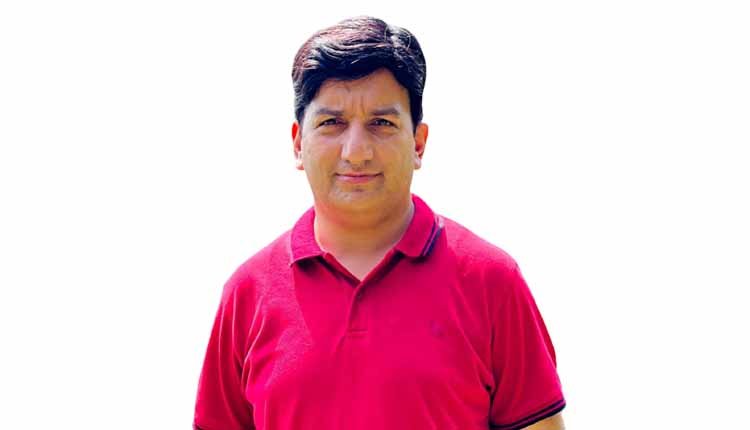Every year, Pakistan produces between 25,000 to 30,000 engineering graduates from its public and private sector universities. Yet, despite this constant stream of qualified talent, more than 50,000 engineers are currently reported to be jobless. For many, the challenges lie in lack of structured training, minimal industry exposure, and a significant gap between academic knowledge and professional skills. In response, the Pakistan Engineering Council (PEC) has launched the Graduate Engineer Trainee (GET) Placement Program—a transformative, house-job style training program aimed at building the competence and employability of young engineers.
This six-month program targets both fresh graduates of 2024 and 2025 as well as engineers who have graduated in the recent past but have not yet secured meaningful employment. The PEC will offer a monthly stipend of PKR 50,000 to each selected trainee, while partner organizations from both public and private sectors will provide on-site training, supervision, and field exposure. This model combines financial support with structured mentorship, enabling engineers to work on real projects under expert guidance.
The program is scheduled for launch in October 2025, with partner organizations required to register by 25 August, and engineer applications opening in September. The goal is clear: to bridge the academia-industry gap and produce technically skilled engineers who can contribute effectively to Pakistan’s development.
This initiative is close to the heart of PEC Chairman Engr. Waseem Nazir, who personally supervised its development. Approved in the 51st Governing Body Meeting held in Bhurban in April 2025, and finalized in the 52nd Governing Body Meeting, the program is now entering its execution phase. To lead its implementation, Chairman Nazir appointed Engr. Osaf Malik (Additional Registrar) as the Program Manager, and a dedicated GET Program Cell has been set up at the PEC headquarters.
The program follows a clear and transparent five-step structure. First, partner organizations register on the GET portal, submit their organizational profile, and nominate a focal person for coordination. They also provide a detailed discipline-wise demand for trainee engineers, as well as information about ongoing or upcoming engineering projects. A Memorandum of Understanding (MoU) will be signed between PEC and each partner for a period of three years.
After the demand is verified, PEC will launch a campaign inviting engineers to apply via the GET portal. Applicants will submit preferences based on location, sector, and discipline. Once applications close, PEC will match engineers with partner organizations through an automated placement process that considers preferences and seat availability.
Once deployed, engineers will receive hands-on experience aligned with their academic training. They will be assigned mentors within the organization, and their attendance and performance will be reported monthly to PEC. A joint monitoring mechanism will include mid-term reviews, monthly reports, and final evaluations to ensure accountability and progress tracking.
One of the most significant features of the GET Program is that engineers will not just walk away with a certificate of participation or internship. Upon successful completion, they will receive a QR-based, verifiable Experience Letter issued by PEC. This document will carry significant weight in the job market, positioning participants as engineers with real-world experience—not just academic credentials. The GET Program thus provides a critical stepping stone for long-term employment.
Moreover, engineers who perform exceptionally during the placement may be considered for permanent roles within the host organization. This possibility of full-time employment after the training period adds further value to the initiative—for both engineers and employers.
For its part, PEC will create a national pool of eligible engineering graduates, ensure orientation and mentoring are in place, and manage all financial disbursements. The Council remains the central authority responsible for the contractual terms and monitoring, ensuring consistency and fairness across all placements.
This program is not just an effort to provide temporary relief to unemployed engineers. It is a systemic intervention aimed at realigning engineering education with practical application, enhancing national technical capacity, and driving progress in infrastructure and industry.
By combining structured training, financial support, proper monitoring, and certified experience, the PEC GET Program offers a much-needed solution to the employment crisis facing young engineers. More importantly, it reflects a strong institutional will to create a future where engineering graduates are not just job seekers—but job-ready professionals.
The PEC invites all eligible government departments, engineering firms, and industrial organizations to become GET Partners before the 25 August 2025 deadline, and be part of this critical national movement. At the same time, engineering graduates are encouraged to prepare for the application launch in September 2025 and stay updated through the PEC website and official advertisements.
In a country where thousands of engineers remain on the sidelines of the workforce, this program stands as a practical and timely response. It is a step toward restoring confidence, ensuring quality, and securing the future of engineering in Pakistan.
Stay updated with the latest news, analyses, and daily happenings —
join
The Catchline’s official WhatsApp channel today!



